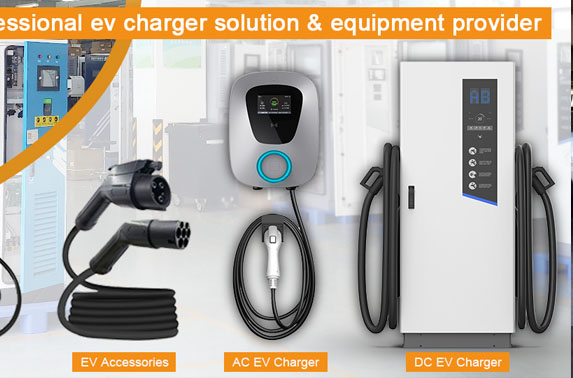
A Tesla charger provides rapid, plug-in charging for electric vehicles. The best charger will reduce installation costs, and allow you to enjoy electric driving.
There are two types of chargers. The Level 1 charger requires a 120V outlet. The Wall Connector requires a 240V supply. The Wall Connector comes with a touchscreen display that displays the maximum amperage a charger can deliver. The Wall Connector is capable of providing up to 44 miles of range per hour of charging. The Wall Connector is a "Level 2" charger, but it is not as powerful as a "Level 3" charger.
A Tesla Supercharger is a type of charger that offers extremely rapid charging speeds. As the charger delivers power to the car's batteries, the logo on the charging station turns green. The charging station's location can determine the speed, which can vary from 15 to 20 miles per hour. The charger is only compatible with certain Tesla models. Superchargers will not accept the 2008 Tesla Roadster.

Another option is to install a Tesla wall charging station. The Wall Connector is intended to be placed on a wall. It can be either indoor or outdoor. Wall chargers have a lightweight, durable design that makes it easy to mount and take down. You can also use it to control charging access, which is essential for certain EVs. It is best to use it in conjunction with a circuitbreaker of 60 amps, but it may also be used in combination with lower-amperage circuitbreakers if necessary.
An electric Tesla charger can either be mounted on a wall studded or completed. The amount of work it takes to install it depends on the electrical capacity of your garage, as well as the wiring and layout. You can spend as little as $200 or as much as $1200. The cost of the charger will vary depending upon the type of charger purchased, the make and model of your car, as well as the local market.
The most expensive charger of all three is the level 2. A $500 home charger can provide up to 44 miles of range for your driving abilities. The cost of a Level2 home charger is dependent on the work required to install it.
Getting an in-car navigation system can help you find and track Superchargers. This system will show you how long it will take for your car to charge up. It will show the amount of charge needed to complete a recharge session and estimate the number of miles you will add to your battery. You will also see stops along the route as well as the cost of the trip.

A Tesla station is equipped with a central display which displays information about the battery's status, including the expected trip cost and estimated mileage. The display is also visible in the Tesla app.
FAQ
How long is an automotive mechanic apprenticeship
An automotive mechanic apprenticeship takes around three years to complete. This includes two year at school as well as two years as an apprenticeship. The first year is spent learning all aspects of the trade, including theory, practical skills, and safety procedures. You'll also learn how tools can be used safely and efficiently during this year. You'll spend the second year in on-the-job training, where you will gain experience in various trades. You will have the opportunity for formal training during these years.
The final year of this program is spent in obtaining qualifications and becoming certified in your field. These include NVQs (National Vocational Qualifications), that are given after passing specific industry exams. Additionally, HNCs are Higher National Certificates that cover general subjects such management, customer service, and business administration. For those interested in pursuing certain trades, City & Guilds certificates are available.
Is being a mechanic apprentice hard?
It's not simple, but you can learn quickly and there are many avenues for advancement.
You will need patience and perseverance. You must also know how to fix cars, trucks, and motorcycles.
Customers and family members can put a lot pressure on you. They want you to succeed. But you should never feel pressured into making decisions you aren't comfortable with.
This is a career that you might enjoy if you are passionate about fixing cars. This is a job that allows you to earn a decent income and grow your business.
But you may prefer another path. This is where you might be interested in becoming a technician.
This is where you use your technical skills to support other workers. Technicians could benefit from your technical expertise to solve problems or teach new techniques.
Another option is to become a service advisor. Here, you'll provide advice and assistance to customers when they bring their cars to a garage.
Your choice is based on what you choose to do. There are many options, so you can choose the one that suits you best.
Is it really worth becoming a mechanic.
The answer to that question depends on what your life purpose is. If you're looking for money, then it's true. But, if there are meaning and purpose in your life, then it's not.
If you don’t have any mechanical skills, it’s pointless to get into it. It will just waste your time. It will not make you rich. It won't make you famous. You won't be famous.
It would take you years to learn how to do everything correctly. This would mean that you would have to pay someone else for your car's repair. Most people avoid doing this. They find something better.
Summarising, if your goal is to make lots of money, go for it. If you are looking for a fulfilling life, however, then stay clear of the mechanics' industry.
What is the length of an automotive training course?
A three-year course in automotive is required.
The first year is spent learning about cars and theory. The second year is dedicated towards practical training. This includes learning how to drive, fix engine problems, and doing other maintenance jobs around your car. The final year is spent doing a placement at a local garage, which gives you experience in fixing real-world problems.
What information do I need about car mechanics
For an auto mechanic job, you don’t have to be an expert in cars. It's enough to know how to fix things. This is why most people get started with simple jobs such as changing brake pads or tires. Then they move on to more difficult repairs.
You need to be able read and comprehend diagrams, follow written instructions and adhere to basic principles of good practice. You'll also need to be able to judge whether parts need replacing or repairing.
It is important that you have proper training and guidance before you attempt to repair vehicles. This is especially true if you deal with expensive components such as engines or transmissions.
Although you won't have to know much about automobiles, you must be familiar with the basics of mechanical engineering as well as physics. This means understanding the principles behind how engines work and how brakes function.
It's also worth noting that you'll need to be prepared to deal with all sorts of situations. For instance, you might find yourself in charge of a vehicle that has been in a serious accident. Also, you'll need to be familiar with dealing with accidents or breakdowns.
Finally, you need to be willing and able to quickly learn new skills. It is important to be able both to diagnose problems and perform simple maintenance tasks, such as tightening nuts.
How do I fix my vehicle as a hobby?
If you are interested in cars, why not take it on as a hobby? You could learn how to repair them, buy parts for them, sell them or just enjoy them. This would be a wonderful hobby if you're looking to find something completely different.
It isn't easy to turn it into a full time job. It requires a lot of hard work and dedication. And you'll need to invest a lot of money too.
It is best to avoid getting involved in car accidents unless you have good reasons.
Is a career in automotive mechanic promising?
There are many exciting opportunities in the automotive industry for people who are driven to achieve excellence. The best way to succeed in this field is by working hard and learning as much as possible from others.
Communication skills are important as customers and coworkers will often be your main focus. You must also be willing and able to travel long distances, which can make it difficult to commute.
If you're interested in pursuing a career in automotive, consider taking classes at community colleges and universities. Many schools offer programs designed specifically for students interested auto repair, sales, and customer services.
Mechanical engineering should be your first choice for a degree. It's possible to get a bachelor's degree in just four years.
Many employers will also hire graduates straight from school. It's a smart idea to begin looking for work while you have the opportunity to study part-time.
Once you've completed your education, you'll probably need to complete some form of training before being able to take up a position as an automotive technician.
This means that you will need to pass tests such as the Automotive Excellence (ASE) certification exam. This test covers engine maintenance and brakes as well as suspension.
Once you have passed the ASE Test, you are eligible to apply for a National Institute for Automotive Service Excellence License.
You can repair vehicles owned by private citizens with a license. You'll get compensation based on the amount of services you perform.
It's important to note that not all states require licensing. You will need a license if you want to work in a different state.
Some states do not issue licenses until they have received a certain amount or training. If you are one of these people, you might need to look for another alternative.
Statistics
- The U.S. Bureau of Labor Statistics (BLS) reports that the job outlook for automotive service technicians and mechanics is expected to decline by 4% from 2019 to 2029. (indeed.com)
- According to the BLS, total auto technician employment is expected to exceed 705,000 by 2030. (uti.edu)
- Apprentice mechanics earn significantly less hourly than mechanics who have completed training, with a median wage of approximately $14.50 an hour, according to PayScale. (jobhero.com)
External Links
How To
How to protect yourself against auto mechanic frauds
Scamming by auto mechanics is a problem that consumers face. On average, a consumer spends $1500 per year on auto repairs. This is a huge opportunity for people to take advantage of it. However, if you know what to look for, you can avoid becoming a victim. These are some ways to spot scammers before they take your money.
-
Never pay upfront. It is likely that someone will ask you to pay them upfront. You should always ask for payment after work is completed. You can call the Better Business Bureau (BBB) at 1-888-322-8138 if you are unsure if something is legal. They'll provide advice and guidance.
-
Ask for references. Contacting previous customers is the best way to make sure you are dealing with a reliable service provider. It's also a good idea to check online reviews. Make sure that any business you deal with has a positive reputation.
-
Do background checks. You should never hire anyone without doing a background check. Check the BBB website to see if there are any complaints against the business. Also, ensure that the vehicle's license number belongs to the person who owns the business.
-
Do not be afraid to leave. Sometimes, even though a business may appear legitimate, they can try to make you pay too much. If you feel that you have been exploited, don't be afraid to walk away. There are many businesses out there that can help you.
-
Don't be fooled by "free" services. There are many companies that offer free inspections and estimates. These companies will often charge you exorbitant fees later. Be sure to ask about additional fees before signing anything.
-
Avoid being pressured. A company may offer you a great deal because they think they are able to charge you less than you should. You should not be forced to buy anything if you find yourself in this situation.
-
High-quality products are what you want. Look for quality parts when looking for a repair shop. If you need to replace brake pads, you don't want to go to a shop that uses cheap pads. Instead, go to a shop specializing in brakes.
-
Get multiple quotes. It is important for you to compare prices among different shops. When you do this, your chances of finding a fair and affordable price are higher.
-
Keep records. It's important to keep track of all the details surrounding your repair. This includes receipts, invoices and warranties. Any phone numbers or addresses you receive should be noted.
-
Stay informed